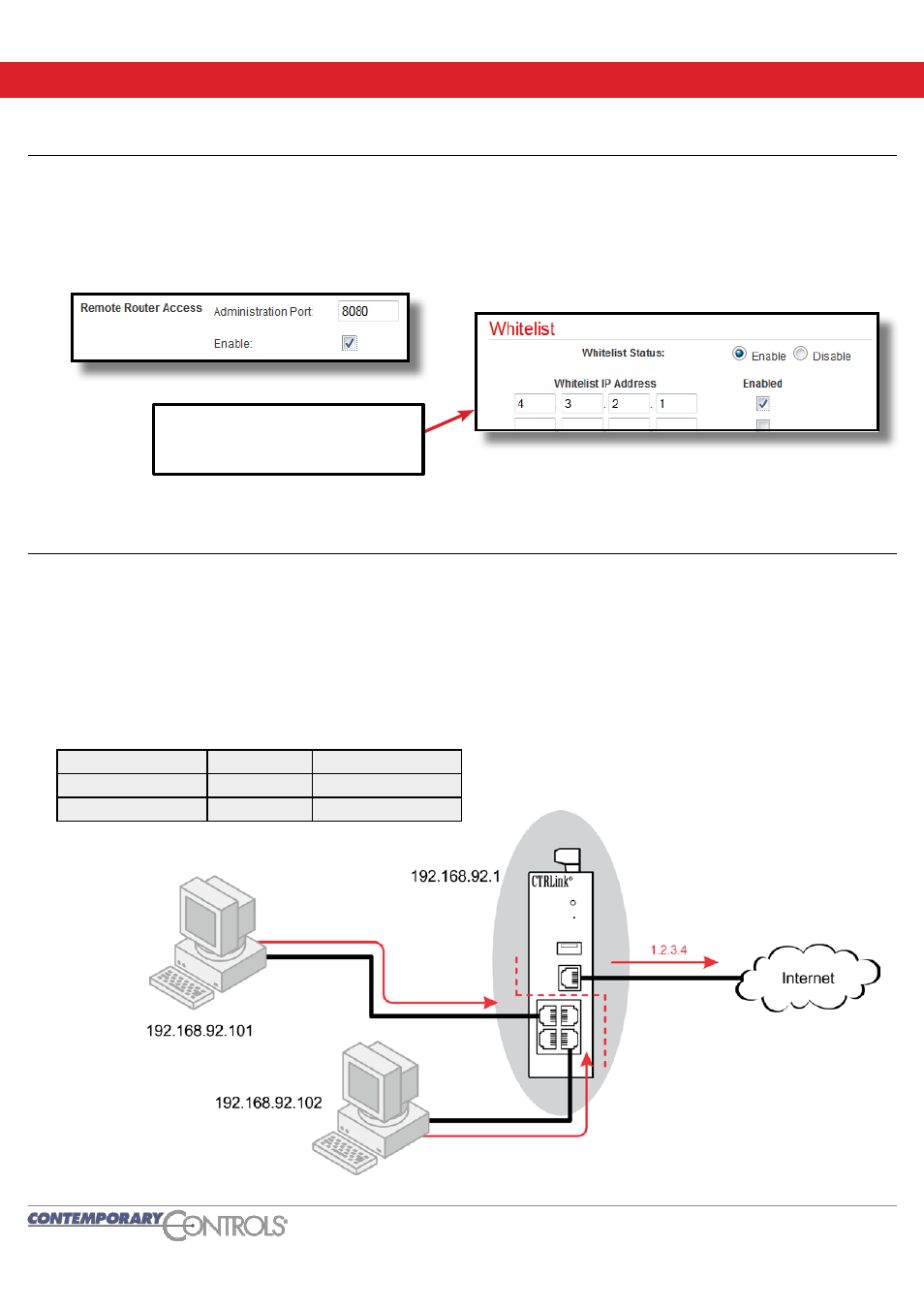Application #8 - port address translation (pat), Application #8 — port address translation (pat), Application guide — eipr series – Contemporary Control Systems EIPR Wired/Wireless VPN Router Application Guide User Manual
Page 11

AG-EIPR0000-BC1
Page 11
Application Guide — EIPR Series
Application #7 — Router Access from a WAN-side Device
PAT (also known as a firewall) allows a many-to-one
mapping of private IP addresses to one public address.
Not only does this provide enhanced security for the
devices on the LAN side, it also allows multiple LAN-side
devices to communicate to devices on the WAN side
using only one WAN IP address. When the WAN network
is connected to the Internet, this allows the LAN devices
to communicate on the Internet via one public IP address.
Most ISPs will limit the number of public IP addresses
provided to their customers. PAT is done by the use of
port assignments — thus, granting private IP addresses
access to the Internet. In this example, the ISP provided
the router the public address of 1.2.3.4. Both LAN-side
PCs have automatically been assigned local IP ports and
granted access to the Internet — and no configuration
was needed.
Internal IP Address
LAN IP Port External IP Address
192.168.92.101/24
5001
1.2.3.4
192.168.92.102/24
5002
1.2.3.4
Application #8 — Port Address Translation (PAT)
In some situations you may want a WAN-side device to
access and possibly configure the router. This is
enabled via the Remote Router Access control (shown
below) found under the Administration tab.
Caution: Enabling this control grants access to any
device on the public or WAN-side. To restrict access to
just certain WAN devices, you must construct a
whitelist such as the example below which specifies an
outside (public or WAN-side) device that has the IP
address of 4.3.2.1.
Enhance Security with a Whitelist
Specify which WAN-side devices
can configure the router.
